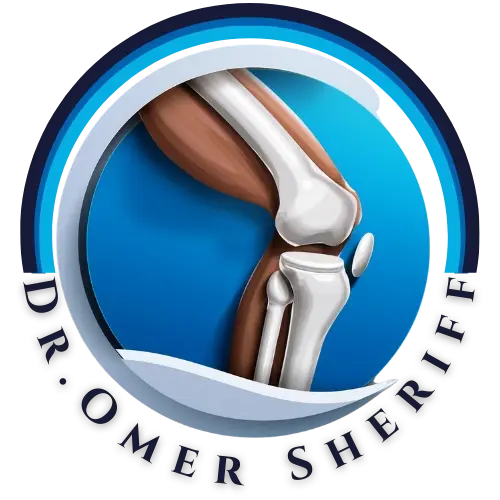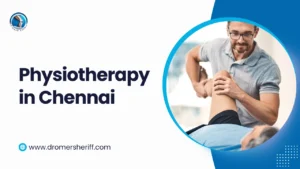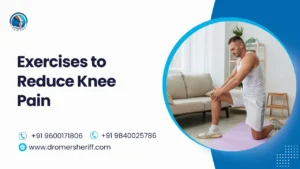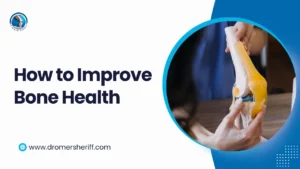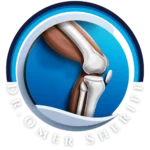If you’ve been struggling with elbow pain that won’t go away, it’s time to consider seeing an elbow pain doctor. Whether you experience a dull ache, sharp discomfort, or burning sensations, your elbow could be trying to tell you something serious. In this guide, we’ll walk you through everything you need to know about elbow pain, including when to consult a specialist, treatment options, and how to find the right elbow pain doctor for you.
Understanding the Importance of an Elbow Pain Doctor
An elbow pain doctor specializes in diagnosing and treating a variety of elbow issues, ensuring that underlying conditions aren’t overlooked. Elbow pain can stem from injuries, overuse, or chronic conditions like arthritis. Whether you’re dealing with sudden discomfort or long-term pain, a skilled specialist for elbow pain can provide the right treatment to address your symptoms. By identifying the root cause whether it’s tendonitis, bursitis, or a nerve issue an elbow pain doctor helps develop a personalized recovery plan, which may include elbow therapy or more advanced treatments, ensuring you regain function and alleviate pain effectively.
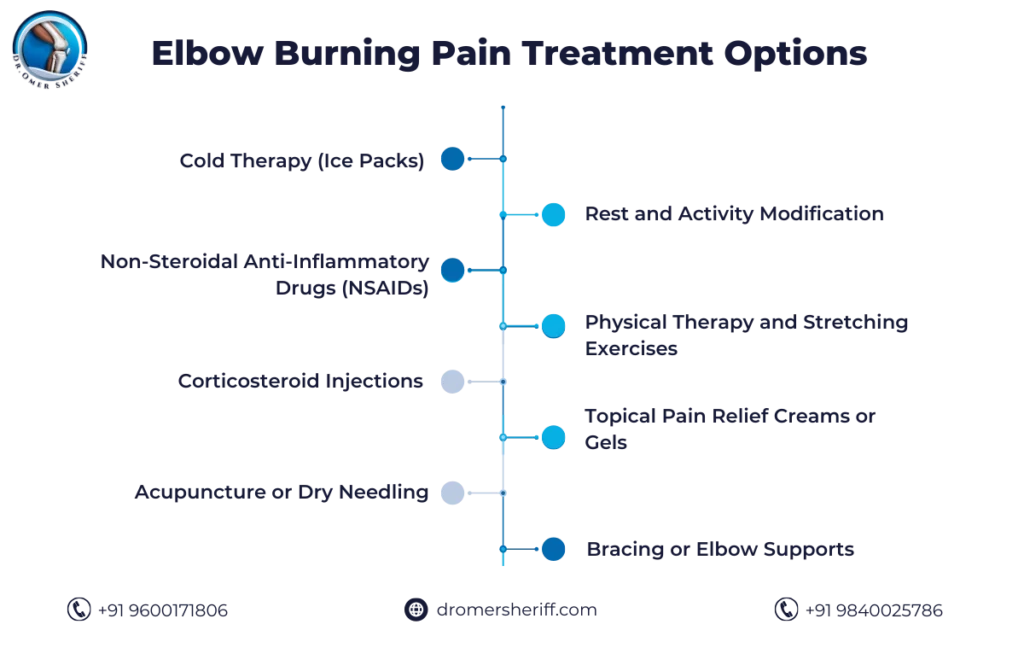
Common Causes of Elbow Pain
Elbow pain can be caused by various issues, and an elbow pain doctor is skilled at differentiating between these causes. Here are some common conditions that can lead to elbow pain:
- Tennis Elbow (Lateral Epicondylitis): This is a condition that results from overuse of the elbow joint, often due to repetitive motions, particularly in sports or manual work. The outer part of the elbow becomes inflamed and painful. Tennis elbow is one of the most frequent reasons patients seek an elbow pain doctor.
- Golfer’s Elbow (Medial Epicondylitis): This condition affects the tendons on the inner side of the elbow. It’s caused by repetitive stress or overuse, similar to tennis elbow, but on the opposite side of the elbow. A specialist for elbow pain can help you manage the discomfort and prevent further aggravation of the tendons.
- Elbow Bursitis: Bursitis occurs when the bursae, small fluid-filled sacs that cushion your joints, become inflamed. It can cause swelling and tenderness. In some cases, infection can occur, and an elbow pain doctor may need to drain the fluid or prescribe antibiotics.
- Elbow Arthritis: elbow arthritis can be due to wear and tear (osteoarthritis) or an autoimmune condition (rheumatoid arthritis). In both cases, an elbow pain doctor will assess your joint function and recommend therapies to reduce pain and improve mobility.
- Fractures and Dislocations: Trauma to the elbow, such as fractures or dislocations, requires immediate attention from an elbow pain doctor. Surgery may be needed to repair the damage, followed by a structured recovery plan that includes elbow therapy to regain strength and flexibility.
- Nerve Entrapment (Cubital Tunnel Syndrome): Nerve entrapment occurs when nerves, such as the ulnar nerve, are compressed or irritated. This condition can lead to elbow burning pain that radiates down the arm. An elbow pain doctor can help by diagnosing nerve entrapment and providing appropriate treatment, whether through medication, therapy, or surgery.
Treatment Options for Elbow Pain
When you consult an elbow pain doctor, the treatment will depend on the underlying cause of your pain. Here are some of the most common and effective treatment options:
1. Physical Therapy for Elbow Pain:
Physical therapy is one of the most recommended treatments by an elbow pain doctor. A personalized therapy plan may include exercises that strengthen the muscles around the elbow joint, improve flexibility, and reduce stress on the tendons and ligaments.
- Stretching and Strengthening Exercises: Your elbow therapy regimen will include stretches to improve flexibility and strengthening exercises to support the injured area.
- Manual Therapy: A physical therapist may perform manual techniques such as massage or joint mobilization to reduce pain and improve movement.
- Heat and Cold Therapy: Ice packs or heating pads can be applied to reduce inflammation and pain.
2. Medications for Pain Relief:
Over-the-counter medications like ibuprofen or naproxen can help manage pain and inflammation. In some cases, an elbow pain doctor may prescribe stronger medications if the pain is severe.
- Corticosteroid Injections: For patients with severe inflammation or arthritis, corticosteroid injections may provide temporary relief. These injections are typically administered by an elbow pain doctor to reduce swelling and pain quickly.
3. Elbow Burning Pain Treatment:
Patients experiencing elbow burning pain, often caused by nerve compression or irritation, may benefit from targeted treatments:
- Nerve Gliding Exercises: These exercises help to release trapped nerves and reduce burning sensations.
- Surgical Decompression: In extreme cases of nerve entrapment, an elbow pain doctor may recommend surgical decompression to alleviate pressure on the nerve.
4. Surgery for Severe Conditions:
If conservative treatments like elbow therapy and medication fail to resolve the issue, surgery may be required. Conditions such as severe arthritis, tendon ruptures, or nerve compression may necessitate surgical intervention by a skilled elbow pain doctor like Dr. Omer Sheriff.
When Surgery Becomes Necessary
If non-surgical treatments don’t bring relief, your elbow pain doctor may recommend surgery. This is typically reserved for severe cases of elbow injuries or conditions like advanced arthritis or persistent nerve compression.
Types of Elbow Surgery and What to Expect:
- Arthroscopy: Minimally invasive surgery using small incisions and a camera to repair damaged tissues.
- Joint Replacement: In severe cases of arthritis, elbow replacement surgery may be necessary.
- Ligament Repair: For injuries like torn tendons, surgical intervention can restore full function.
Non-Surgical Treatments an Elbow Pain Doctor Might Recommend
In many cases, non-surgical interventions can provide relief and restore function to your elbow. Your elbow pain doctor might suggest:
- Physical Therapy: Focused exercises to build strength and flexibility in the elbow joint.
- Medications: Non-steroidal anti-inflammatory drugs (NSAIDs) can help manage pain.
- Steroid Injections: Cortisone shots provide long-term pain relief by reducing inflammation.
- Braces and Supports: Wearing an elbow brace can help relieve strain and promote healing.
Signs You Need to See an Elbow Pain Doctor
Elbow pain isn’t always something to shrug off. In some cases, ignoring it can make things worse. Here’s when you should consider seeing an elbow pain doctor:
- Persistent Pain: A Warning Sign: If your pain persists for more than a week or worsens with movement, it’s a clear sign to seek professional help. Chronic discomfort is often an indication of something more serious that requires medical intervention.
- Limited Mobility and Stiffness: Are you finding it difficult to bend or straighten your arm? Stiffness or a lack of mobility in your elbow could indicate damage to your ligaments, tendons, or bones. An elbow pain doctor can recommend appropriate elbow therapy techniques to restore your arm’s range of motion.
Why Dr. Omer Sheriff is Your Best Choice for Elbow Pain Treatment
When it comes to treating elbow pain, experience and expertise matter. Dr. Omer Sheriff is a renowned elbow pain doctor with years of experience in diagnosing and treating a wide variety of elbow conditions. Whether you are dealing with tennis elbow, bursitis, or elbow burning pain, Dr. Sheriff’s comprehensive approach ensures that patients receive the most effective treatments available.
Expertise in Non-Surgical and Surgical Treatments:
Dr. Sheriff specializes in both non-invasive treatments such as elbow therapy and pain management as well as advanced surgical procedures for those requiring more intensive intervention. His approach is always patient-centered, ensuring that every individual receives personalized care suited to their needs.
Innovative Elbow Pain Treatments:
As a leading specialist for elbow pain, Dr. Sheriff stays up to date with the latest advancements in treatment. This means his patients benefit from cutting-edge therapies and minimally invasive techniques, allowing for faster recovery and better outcomes.
How to Prevent Elbow Pain
While an elbow pain doctor can provide treatments to manage and relieve discomfort, preventing elbow pain in the first place is ideal. Here are a few tips to help prevent elbow pain:
- Proper Warm-Up: Always warm up before engaging in sports or activities that put stress on your elbow.
- Ergonomic Adjustments: Make sure your work environment is set up to minimize strain on your elbows, especially if you spend long hours typing or using a mouse.
- Strengthening Exercises: Regularly perform exercises that strengthen the muscles around your elbow to prevent overuse injuries.
- Avoid Repetitive Motions: Take breaks during activities that require repetitive elbow movements to avoid strain.
Conclusion
Early intervention is key when dealing with elbow pain. If you’re experiencing discomfort, limited mobility, or burning sensations, it’s important to consult an elbow pain doctor like Dr. Omer Sheriff. Ignoring these symptoms can lead to worsening conditions, but by seeking prompt medical attention, you’ll receive an accurate diagnosis and effective treatment plan. Whether it’s elbow therapy or more advanced treatments, Dr. Sheriff’s expertise ensures you’ll recover faster and get back to living pain-free sooner. Don’t wait for the pain to escalate schedule a consultation and take the first step toward relief.

